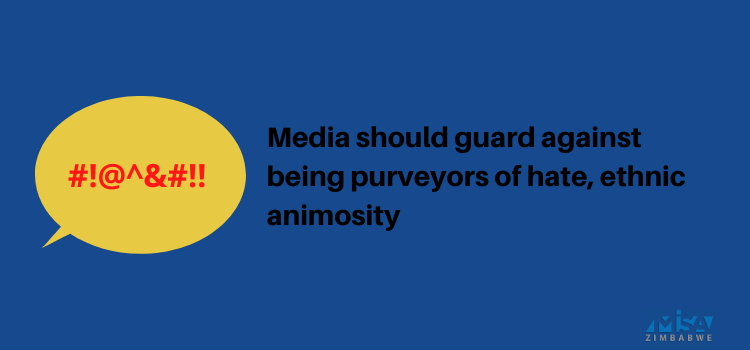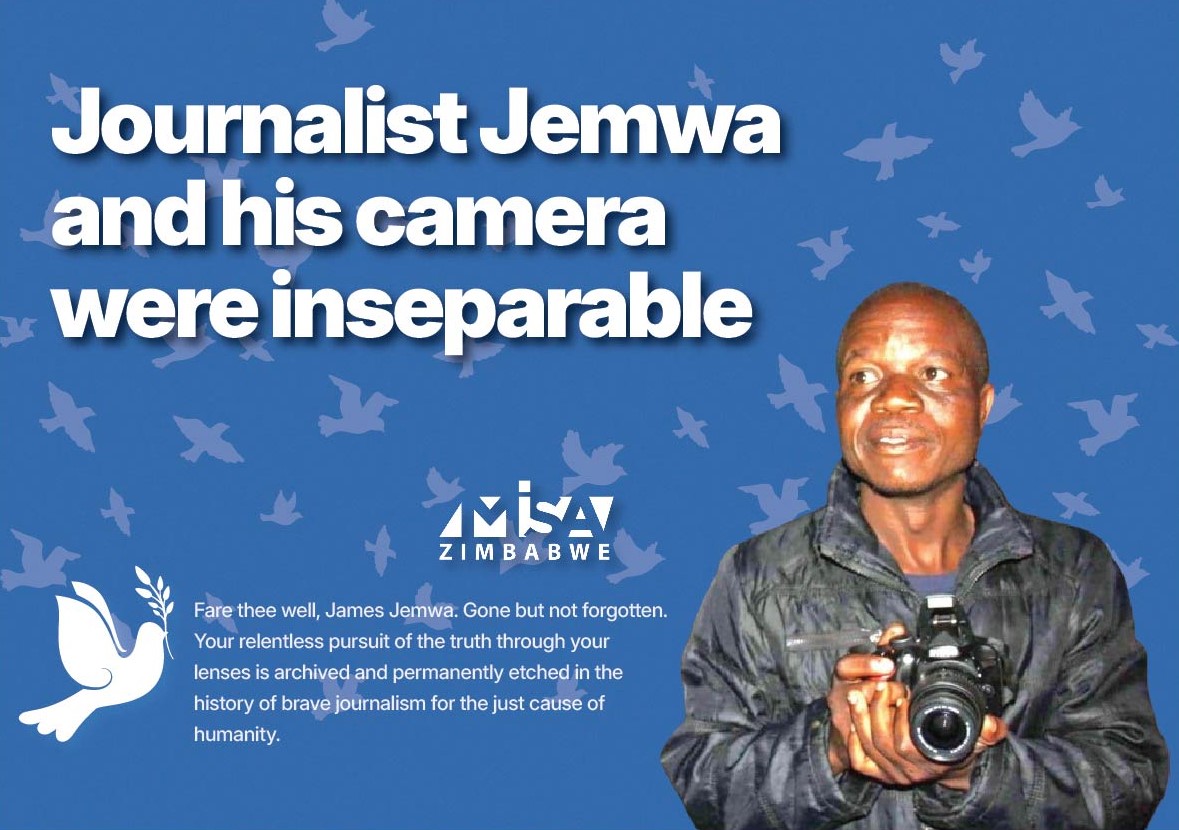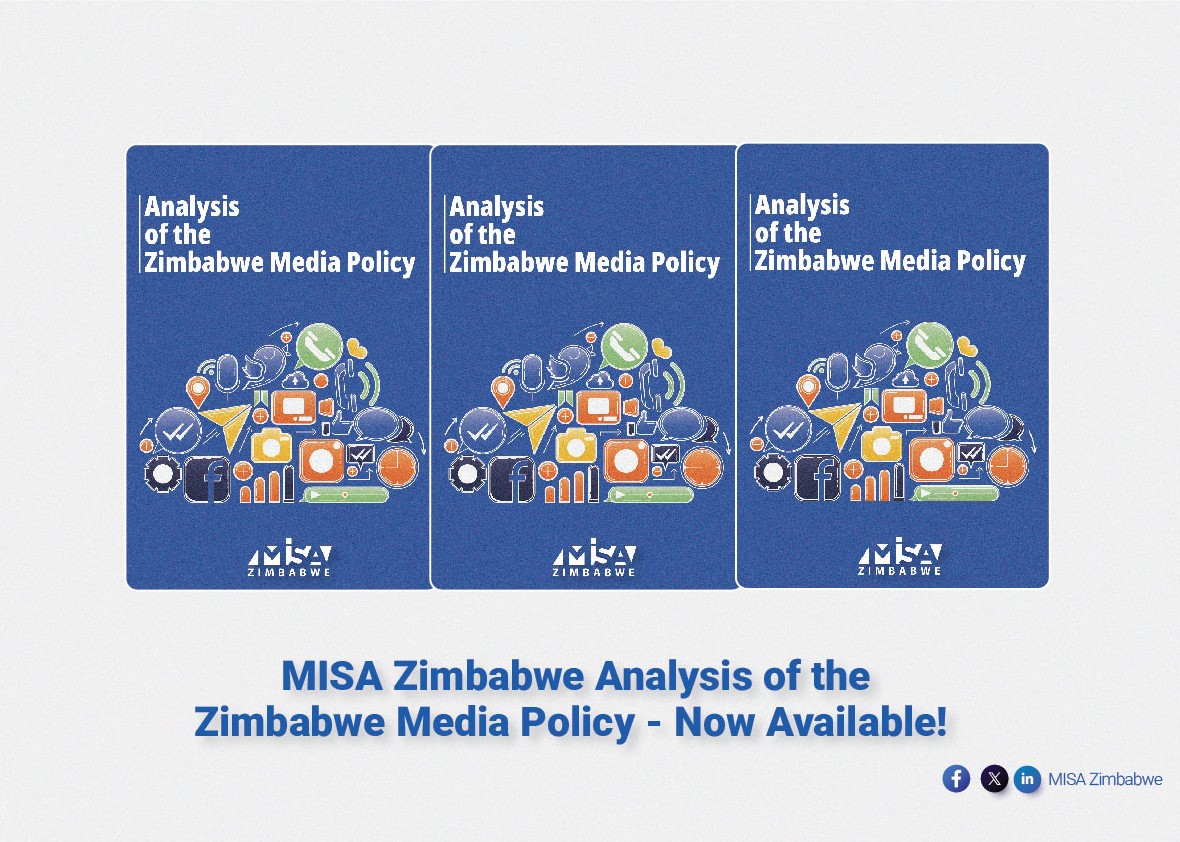The tribally connotative remarks attributed to the Minister of Information, Publicity and Broadcasting Services Senator Monica Mutsvangwa, following the pastoral letter issued by the Zimbabwe Catholic Bishops Conference (ZCBC), are not exemplary or helpful when viewed in the context of the constitutional obligations that bind senior government officials.
In her strongly worded response to the pastoral letter, Minister Mutsvangwa singled out and accused Bishop Robert Christopher Ndlovu, ZCBC president, of leading the bishops on the pathway of petty tribalism, narrow regionalism and racial antagonism.
Media should guard against hate language, uphold Constitution
MISA Zimbabwe’s great concern in that regard is informed by the minister’s proximity to the media, more so as it pertains to the public media, which, as is expected with all other media, should guard against being the purveyors of hate language.
The Constitution of Zimbabwe by virtue of its being, the supreme law of the country, binds every person including the State, executive, the legislature, the judiciary and agencies of government to fulfil its obligations.
Section 56, which deals with equality and non-discrimination, stipulates that every person has the right not to be treated in an unfairly discriminatory manner on the grounds of their nationality, race, colour, tribe, place of birth, ethnic or social origin, language, class, religious belief, political affiliation, opinion, custom, among others.
In that regard, ministers and government officials, among others, should be exemplary in upholding the supremacy of the Constitution. Equally, the media plays an important role in ensuring that it does not disseminate information that is likely to engender discrimination, hostility or enmity on the basis of one’s tribe or ethnic or social origin.
State actors should use temperate and measured language
The media should always, thus be on high alert and guard against propagating information that has the potential of triggering tribal or ethnic hostility among the citizens of Zimbabwe. While Section 61 of the Constitution provides for freedom of expression and media freedom, it emphasizes that these freedoms exclude, incitement to violence, advocacy of hatred or hate speech and malicious injury to a person’s reputation or dignity.
Public officials, should in that vein, be mindful of statements that have the potential of inflaming hatred or discrimination along racial, tribal or ethnic lines and should always use temperate language in their communication or responses to issues to avert animosity and hostility among citizens.
These issues speak to the core and imperative need to secure the editorial independence of the public media and safeguard it from being abused by public officials as has been of concern over the years.
This will allow the media space to independently weigh the effect of pronouncements by public officials, all political parties and politicians, by subjecting them to due scrutiny and regard as dictated by the ethics of the profession for the sake of national peace and stability critical to socio-economic development and prosperity.
Statements or pronouncements by politicians, regardless of their political affiliations, should thus be subjected to the profession’s rigorous checks and balances as opposed to regurgitating them word for word in their potentially explosive context.
This demands the media be impartial and afford fair opportunity for the presentation of divergent views and dissenting opinions as highlighted and advised by the Constitution in terms of the enjoyment of the rights to media freedom and freedom of expression.
This is not to say the media or journalists should suppress essential information but should do its utmost to verify and rectify information that has the potential of being harmfully inaccurate. This can be achieved by reporting both sides of the story and the inclusion of as many voices as is possible to assist the public in making informed, but lawful decisions and choices as provided for in the Constitution.
MISA Zimbabwe, therefore, implores, politicians, more so those tasked with communicating government positions to use temperate and measured language while being tolerant of constructive criticism and divergent views.
That is the hallmark of mature politicians and politics which goes a long way in lowering the highly charged socio-economic and political environment, thereby, leaving room for dialogue and engagement on critical national issues.
Golden Maunganidze
Chairperson, MISA Zimbabwe













